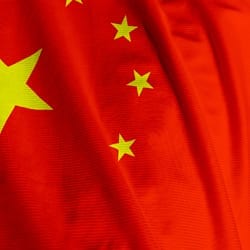In a July chock full of bad news, China’s State Council has some good news for hundreds of millions of Chinese peasants: they are on their way to being treated the same under the law as those lucky enough to be born in China’s cities. After more than five decades, China’s central government is modernizing, standardizing and regulating the Hukou (户口) system of registration that largely tied farmers to the lands on which they were born, and kept them out of the cities and away from competing with urban residents for jobs and benefits. China is now officially gradually phasing out its highly unequal two-tier system of citizenship.
Visitors to China are often struck by the fact that its largest cities — Shanghai is over 20 million in population — lack the immense, sprawling slums of Mexico City, Cairo, Nairobi or Mumbai, or the favelas of a Rio de Janeiro or São Paulo. China does indeed have slums, but such poverty has largely been kept to the countryside because of the Hukou system’s restrictions against labor mobility. A Chinese born in Beijing or Shanghai is entitled to good schools, comprehensive social security and health care, but those in the countryside can rarely count on such government benefits. The Beijingers can move freely around China, following the work opportunities as they appear, but the peasant can only illegally work in Beijing or Shanghai, much as undocumented immigrants from other countries must do in America. The new reforms set in motion new procedures that mean current generations may be the last to face such second-class citizenship.
Because China’s one-child policy was most successful in its largest cities, and these localities are now facing a graying of their populations, cities such as Shanghai and Beijing have already been experimenting with reforms that allow them to pick and choose among migrants from the countryside and smaller cities. The new regulations standardize and regularize these experiments across localities. Peasants wanting to move to cities of one or several million in size can now expect fewer barriers until they become legal residents. Those moving to cities of five million or greater, however, must first have stable jobs, purchased housing, and been making years of tax contributions to local social security, education and health programs before they can apply to be Beijingers or Shanghainese.
The new reforms are far from complete, but they have immense symbolic value. Many questions remain. When will China create a national social welfare system to replace the enclaves of privilege? How will the central government compel local governments to follow these regulations? Will these lead to reforms in China’s limited form of representative democracy, in which urban residents are greatly over-represented in peoples congresses and government advisory bodies? China became slightly more urban than rural in recent years, and how long before all Chinese are treated equally from birth?
Steven W. Lewis is the Baker Institute’s C.V. Starr Transnational China Fellow and faculty adviser for the Jesse Jones Leadership Center Summer in D.C. Policy Research Internship Program. He is also a professor in the practice and an associate director of the Chao Center for Asian Studies.
